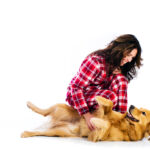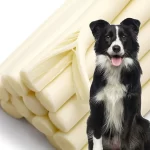How To Remove Tartar From Dog Teeth Without Dentist
When it comes to our furry friends, we want them to be happy and healthy. One of the things that can affect their health is tartar buildup on their teeth. Tartar is a hardened plaque that can lead to gum disease and tooth decay if left untreated. But what can you do if your dog has tartar buildup on their teeth? You might think that the only solution is a trip to the dentist, but there are actually several ways you can remove tartar from your dog s teeth at home.
Firstly, it’s important to understand how tartar forms on dog teeth. When dogs eat, food particles get stuck in their teeth. Over time, these particles combine with saliva and bacteria to form plaque. If this plaque is not removed through brushing or other means, it hardens into tartar. Tartar is much harder than plaque and cannot be removed by regular brushing alone.
So, how can you remove tartar from your dog s teeth without a trip to the dentist? Here are some effective methods:
1. Brushing
Regular brushing is the best way to prevent tartar buildup on your dog s teeth. Use a soft-bristled toothbrush and dog-specific toothpaste to gently scrub your dog s teeth and gums. Start slowly if your dog is not used to having their teeth brushed, gradually increasing the amount of time until you can brush for two minutes per session.
2. Diet
What your dog eats can play a big role in their dental health. A diet that includes plenty of raw bones and chew toys can help scrape away tartar before it has a chance to harden. Hard kibble also helps clean teeth as dogs crunch down on it while eating.
3. Dental treats
There are many dental treats available that are designed to help remove tartar from a dog¡¯s teeth. Look for treats that have been specifically formulated for dental health, as they often contain ingredients like enzymes and chlorhexidine that can help break down tartar.
4. Coconut oil
Coconut oil is a natural anti-bacterial agent that can help reduce the amount of bacteria in your dog¡¯s mouth, which can prev



